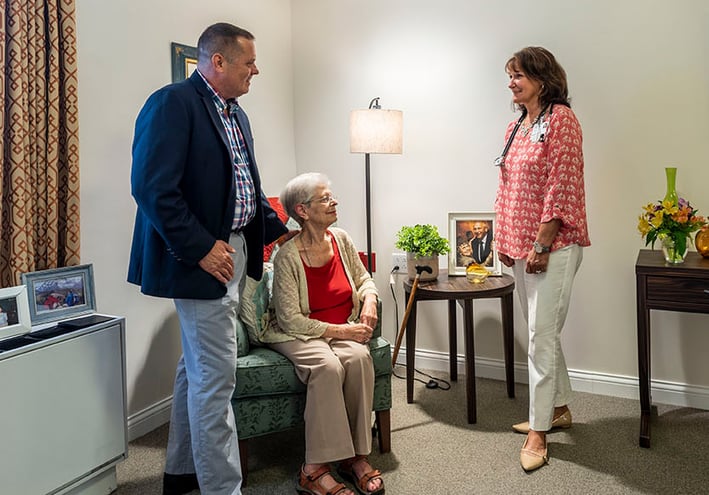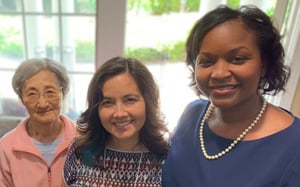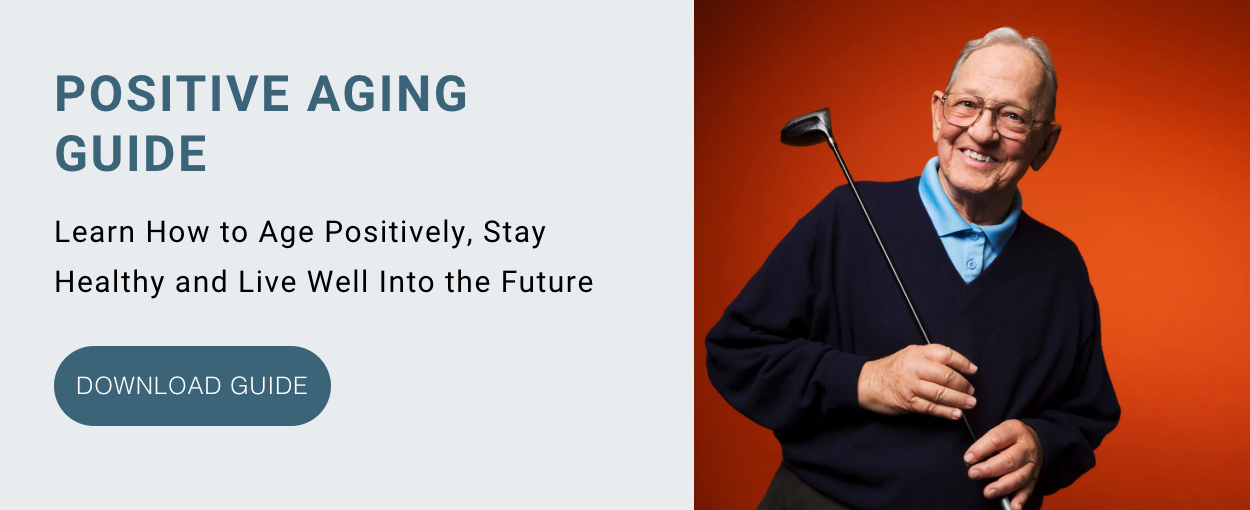
Person-centeredness is a common theme running through all of our communities, programs, and services at Episcopal Retirement Services (ERS). Wondering what this term means, why it matters, and how we leverage it toward the physical, mental and spiritual health of all of our community members? Here’s a closer look at person-centered care (PCC) at ERS.
What is Person-Centered Care?
“Person-centered care is a way of thinking and doing things that sees the people using health and social services as equal partners in planning, developing and monitoring care to make sure it meets their needs. This means putting people and their families at the center of decisions and seeing them as experts, working alongside professionals to get the best outcome,” says the Health Information Network.
PCC means much more than providing people with information and meeting their basic needs and wants. It also means considering the many holistic factors that make someone an individual in order to offer them the flexible care and services that are best for them. While some care approaches attempt to fit people into routines and practices that make sense from an organizational perspective, person-centered care keeps the individual at its center at all times.
Another way to look at it is that while conventional care models may be task-oriented with a focus on physical health, person-centered care acknowledges emotional needs and the value of relationships.
The concept of person-centered care goes by many different names, including patient-centered, family-centered, user-centered, individualized and personalized. Regardless of what you call it and despite a lack of standardized parameters for person-centered care, it typically comprises the following:
- Respecting people’s values and putting them at the center of care
- Addressing people’s preferences and needs
- Coordinating and integrating care
- Prioritizing good communication, information, and education
- Ensuring that people feel safe and comfortable
- Providing emotional support as well as services
- Involving family members and friends
- Ensuring continuity of care within and across all services
- Making sure people have access to appropriate care as needed
Concludes the Alzheimer’s Association of person-centered care, “While many approaches are developing, the core values that unite them are choice, dignity, respect, and self-determination.”
Why Person-Centered Care Matters
In ensuring that people are central participants in their own care, person-centered care becomes uniquely empowering. It’s also associated with greater levels of satisfaction and enhanced quality of life among care recipients, their families, and care professionals.
While person-centered care is advantageous to everyone, research indicates that it has special benefits for people with dementia and can lead to a reduction in symptoms like agitation, neuropsychiatric issues, and depression.
“The person-centered approach may provide the best interpretation for why such symptoms appear,” proposes a study in the Clinical Interventions in Aging, “as all disease-related symptoms and limitations threaten normality and maintenance of human dignity, for individuals with dementia.”
Person-Centered Care at ERS
Unfortunately, not all senior care communities have accepted the innovation and culture change involved in delivering person-centered care. At ERS, we’re proud to bring the person-centered care philosophy to everything we do. It’s become such an integral part of ERS that we've built it into our mission statement: “We enrich the lives of older adults in a person-centered, innovative, and spiritually based way.”
We’re even prouder that the inspiration and impetus for adopting this ethos came from one of our own community members. As a board member and active resident of Marjorie P. Lee, Hans Amstein was part of the team that navigated our transition to person-centered care. His knowledge, know-how, and commitment led to a remarkable cultural transformation within our communities.

Today, every interaction at every ERS community occurs at the highest levels of empathy and understanding. What, exactly, does this look like? For starters, it means that all community members are encouraged to continue to live with the freedom, choice, and purpose they did before joining us. “Our residents’ individual needs come first at all times. If one of our residents needs something, we make every effort to fulfill the request,” says the Episcopal Church Home's (ECH) Executive Director Beverly Edwards.
Their participation in their own care, meanwhile, adds up to better health and wellness outcomes. Insists Episcopal Retirement Services’ Medical Director Dr. Jason Graff, “People are less likely to ‘give up’ [in an environment like Berghamer House or Deupree Cottages]. When they have a belief in their treatment program, they do well.”
High staff-to-resident ratios and dedication to hiring the right people further enhance our ability to optimally support our community members. It’s not an accident that we enjoy exceptionally high career longevity from our employees. The patient-centered care approach factors in here, too. Says 30-year ERS employee Judi Dean, Director of Nursing at Marjorie P. Lee, “You are here to serve these amazing residents who have been a part of our history. When you all have the same goal, it’s easy.”
To learn more about ERS’s person-centered communities, services and staff, contact us today. For more on our Ways of Working, including Progressive Thinking and Relationships, visit our blog.












